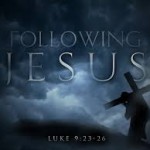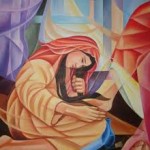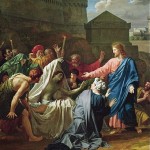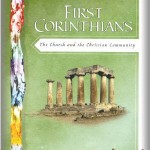Thirteenth Sunday in Ordinary Time – Cycle C
Reflecting on Luke 9: 51-62
There is a theory in some circles that the name Nazir—set apart—was purposefully chosen by a clan of Jews, tracing their ancestry to King David himself, who settled in a region twenty miles south of the Sea of Galilee a few years before the birth of Jesus. They named their tiny city Nazareth because they believed that they were royalty, set apart, and that the Messiah would come from their family line.
And of course he did. But perhaps Jesus was different from what they thought the Messiah would be. The earlier gospels (but not John) reveal an underlying misapprehension of the mission of Jesus on the part of some of his family members.
At the age of twelve he stayed behind in Jerusalem after the festival of Passover while his family left for home. When his anxious parents returned and found him in the Temple he was astounded that they didn’t know that he must be about his Father’s business (Lk. 2: 41-52).
Around the age of 30 “he left Nazareth and made his home by the sea” (Matt: 4:13). The gospel of Mark recounts his many miracles there, and that his relatives “set out to seize him, for they said, ‘He is out of his mind’” (3:21). Later in that chapter, when they arrive and ask to see him, Jesus looks at the crowd and says, “Here are my mother and brothers. Whoever does the will of God is my brother and sister and mother” (3: 34, 35).
And now, in today’s gospel, he tells the young man to forfeit his most important family duty and “let the dead bury the dead”. Jesus relentlessly shocks us with his obsessive desire for each of us to get to heaven, even if it means not fulfilling what our families may see as our more important roles. His mother Mary, who stood at the foot of the cross, understands that perfectly.
What are you leaving behind in order to be fit for the kingdom?





